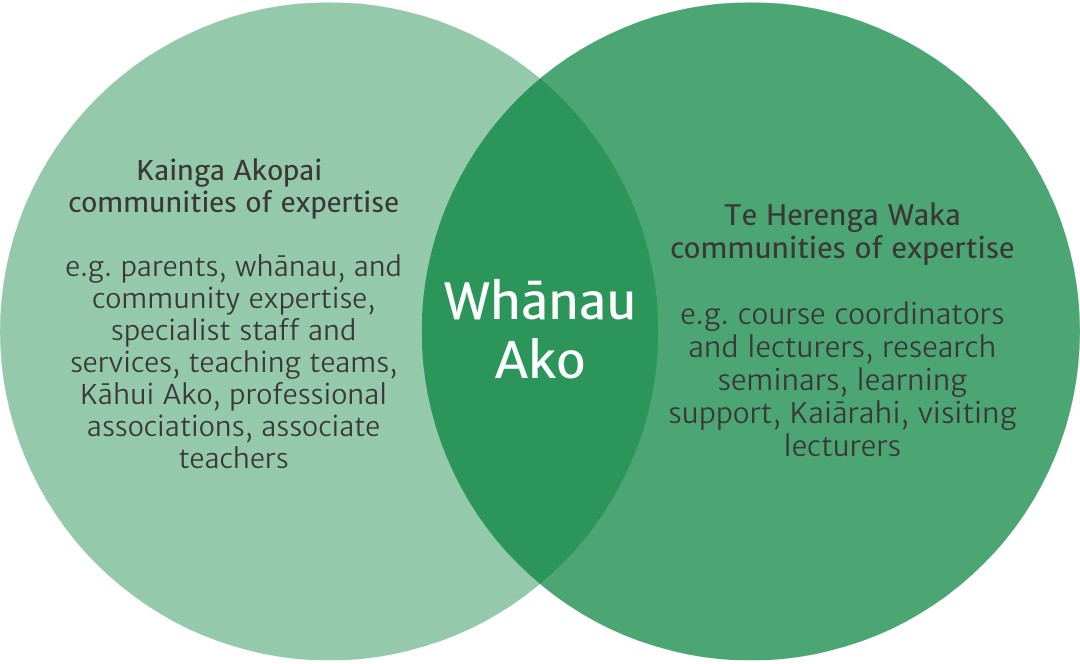Whānau ako Professional learning community
Student teachers will be in a Whānau Ako or a professional learning community, led by a Kaiārahi and will closely involve their associate teacher.
A key feature of Te Waharoa, particularly Ngā Maihi, is student teachers’ involvement in two overlapping communities of expertise: Kainga Akopai/Host Schools and Victoria University of Wellington/Te Herenga Waka.

Whānau Ako, or professional learning communities, exist at the intersection of these two communities of expertise and closely involve the triad of the student teacher, their associate teacher, and their kaiārahi. Kaiārahi lead Whānau Ako of up to 15 student teachers in regular face-to-face and zoom meetings throughout the year, including during full-time professional practice.
In the one-year graduate programmes, whānau ako groups are etablished at the beginning of the year and hui occur throughout the year.
Whānau Ako support Te Ara Hāpai, student teachers’ growing professional identities and capabilities of reflexivity, adaptive expertise, and ethical sensitivity through:
- Exploring the challenges and opportunities in teaching and learning to teach.
- Encouraging the de-privatisation of teaching practices and providing a safe and supportive environment to reflect on progress towards, and set goals for, meeting the teaching standards.
- Cross-contextualising course themes and enabling understanding and integration of the theoretical and pedagogical underpinnings of teaching practices.
- Comparing and evaluating different learning environments and pedagogical approaches they experience in their learning contexts.
- Providing mentoring and regular cycles of reflection and goal setting to personalise professional practices.
Kaiārahi are a lead point of contact for student teachers for matters related to teaching advice, supported by the programme director and Education Professional Practice and Partnerships Office (EPPPO).
Members of Whānau Ako collaborate via professional practice visits, regular email contact, reflection and goal-setting meetings between the student teacher, associate teacher and kaiārahi, and associate teacher hui.
